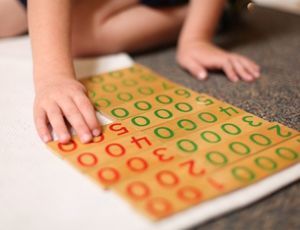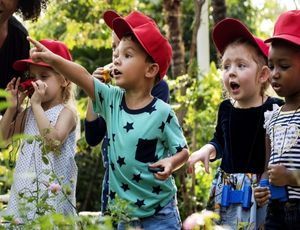Working Through Aggressive Behaviors with Children
As upsetting as it is when another child hurts your child, it can be equally perplexing when your own child behaves aggressively toward another child or adult. The reasons for aggressive behavior may vary depending upon the age of the child and may be any or a combination of the following: self-defense, reaction to stressful situations, lack of routine, frustration, anger, absence of verbal skills, over-stimulation, exhaustion, hunger, lack of appropriate supervision, or imitation of aggressive behavior (Munson). Toddlers may hit and bite because they do not yet have words to express their needs and emotions. Children of school age may lash out at others because they have not yet learned to identify and regulate their emotions. Older children may act with aggression because in some situations this behavior may help them to get what they want (Morin, 2016).
Most of us experience anger and frustration at times. As adults, it is our responsibility to both model and teach our children self-control and appropriate ways to handle anger. Psychologist Dr. Joan Simeo Munson and social worker Amy Morin offer the following guidelines for working through aggressive behavior with our children:
- Set firm and consistent limits. Make sure your child knows boundaries and that hitting, kicking, biting, and other forms of aggressive behavior are not allowed; maintain consistency by ensuring that everyone involved in your child’s care knows these boundaries.
- At the first sign of aggressive behavior, step in to remove your child from the situation. Learn as much as you can about the circumstances that seem to trigger the aggressive behavior. Review with your child ahead of time behavior expectations and rules.
- Help your child to identify emotions and to discuss what he or she is feeling.
- Model peaceful conflict resolution in your home and encourage your child to use his words rather than aggression. State the rules in positive terms, demonstrating if necessary: “use gentle hands”, as opposed to “stop hitting!”
- If your child hurts someone, encourage restitution to help repair the relationship and build friendship.
- Help your child to develop go-to strategies for self-control, e.g., walking away, taking deep breaths, counting to ten, or engaging in a quiet activity to calm down. Model self-control in stressful, frustrating situations. Lowering your voice, rather than yelling can help to diffuse anger and calm emotions.
- Be conscious of words and attitudes which might encourage aggressive behavior, e.g., praising your child for being “tough” or “strong” might be interpreted by some children as encouragement to hit, bite or otherwise demonstrate physical strength or dominance.
- Be aware that any form of physical discipline may reinforce aggressive behavior in your child who may conclude that if adults can spank, hitting is ok. Avoid your child’s exposure to violence in television and video games.
- Recognize your child’s limitations in any given situation. If your child is over-stimulated, tired, or hungry, avoid activities that add more stimulation or stress. Instead, redirect your child into activities that are calming, such as Legos, Pla-Doh, reading, listening to music, etc.
- Seek professional help to identify underlying causes when aggressive behavior persists or escalates over time.
At MSL, students are coached in conflict resolution and in respecting themselves, each other and the environment. Even our youngest students work on “gentle hands”, kind words and walking away from conflict. Older children use “peace talks” and “I statements” to resolve their differences and declare peace. Ask your student to show you the
Peace Rose Lesson!
References:
www.empowering parents.com/article-categories/child-behavior-problems/aggression/Hitting, Biting and Kicking: How to Stop Aggressive Behavior in Young Children
https://www.verywell.com/discipline-strategies-to-manage-aggression-in-children-1094953
http://www.mymontessorijourney.typepad.com/my_montessori_journey/2008/10/the-peace-rose.html






